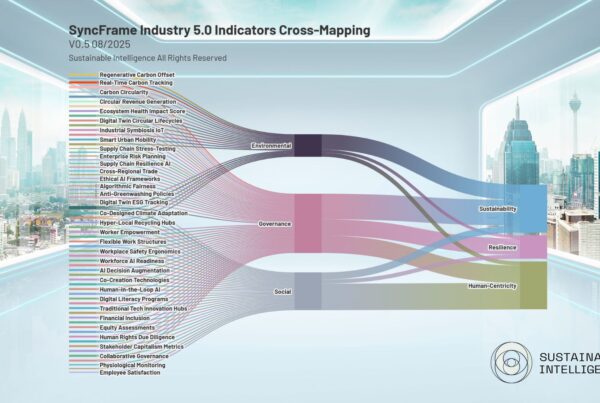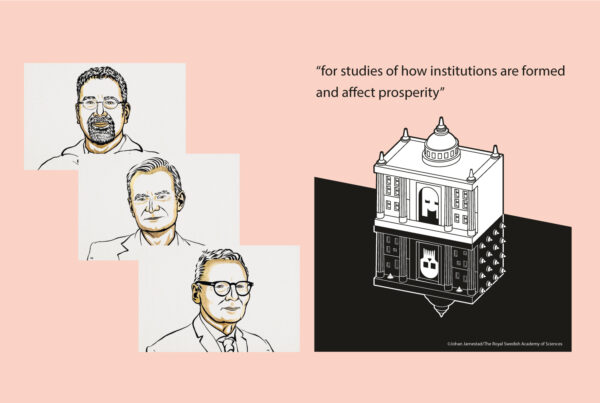Industry 5.0, the next evolution of industrial development, goes beyond automation and aims for a human-centered approach. It prioritizes collaboration between humans and machines, fostering a symbiotic relationship where technology empowers people and enhances their well-being. At the heart of this vision lies “human-centricity,” one of the three pillars of Industry 5.0, and a key principle aligned with the European Commission’s priorities for an economy that works for people, a Europe fit for the digital age, and the EU Green Deal.
Defining Human-Centricity:
Human-centricity is a design philosophy that prioritizes human needs, capabilities, and values in the design, development, and deployment of technology and organizational systems. It recognizes the inherent value of human creativity, empathy, and critical thinking, which remain essential for successful innovation and societal progress. Human-centricity aims to:
-
Empower Humans: By creating technologies and workplaces that amplify human capabilities, promote well-being, and ensure a sense of purpose and agency.
-
Enhance Collaboration: By facilitating effective and meaningful collaboration between humans and machines, leading to innovative solutions and shared value creation.
-
Promote Ethical Use of Technology: By embedding ethical considerations in the development and deployment of technology, fostering trust and transparency.
”We need a digital transformation that leaves no one behind. This means ensuring that everyone has access to the skills and opportunities they need to thrive in the digital age.
Ursula von der LeyenPresident of the European Commission
Standards for Human-Centricity:
The journey toward human-centricity necessitates establishing concrete frameworks and standards. While specific standards for “human-centricity” are still emerging, several relevant standards exist at both the organizational and technology levels:
Organizational Level:
-
ISO 26000:2010: Provides guidelines on social responsibility, encompassing human rights, labor practices, environmental responsibility, and consumer protection.
-
ISO 45001:2018: Focuses on occupational health and safety, ensuring that workplaces prioritize employee well-being and safety.
-
ISO 9001:2015: Establishes a framework for quality management systems, encompassing processes that prioritize customer needs and satisfaction, thus contributing to a more human-centered organization.
Technological Level:
-
ISO 20555: Addresses design for all and focuses on inclusivity and accessibility, ensuring that technology is designed to cater to diverse needs and capabilities.
-
ISO 20572: Focuses on human-system interaction, providing guidance on creating intuitive and user-friendly interfaces for seamless interaction with technology.
-
IEEE Standards for Ethical Considerations in Artificial Intelligence and Autonomous Systems (IEEE P7000 Series): This set of standards focuses on addressing ethical concerns related to AI and autonomous systems, fostering the development of trustworthy and human-centric technologies.
SyncFrame: Embracing Human-Centricity for Industry 5.0
SyncFrame recognizes the transformative potential of Industry 5.0 and embraces human-centricity as a core principle. We offer a comprehensive approach and technology that enables organizations to achieve Industry 5.0 objectives by aligning with relevant standards and principles related to human-centricity:
Our Approach:
-
User-Centered Design: Our approach prioritizes human needs, skills, and well-being throughout the technology design to implementation. We utilize user research, participatory design methodologies, and ergonomic considerations to create solutions that are intuitive, accessible, and empower users.
-
Skill Augmentation: We focus on building solutions that augment human skills and abilities, rather than replacing them. This means empowering employees to work smarter, not harder, by automating repetitive tasks and freeing them to focus on higher-level functions that require creativity, critical thinking, and collaboration.
-
Sustainable Collaboration: We aim to facilitate seamless and effective collaboration between humans and machines, ensuring that technology is a valuable tool to enhance human performance and productivity. Our solutions emphasize transparency, explainability, and feedback mechanisms to foster mutual understanding and trust.
-
Promoting Ethical Practices: SyncFrame is committed to building technologies that are fair, unbiased, and transparent. We embed ethical considerations in our development process and actively promote data privacy and security. We actively collaborate with stakeholders to establish responsible governance structures for AI and autonomous systems.
Technology:
SyncFrame provides a range of technologies and services to companies and organizations that support a collaborative human-centric approach:
-
Intelligent Automation: We leverage automation technologies that learn and adapt to individual needs and preferences, providing personalized support and increasing efficiency without sacrificing user control.
-
Collaborative Robots: We develop collaborative robots that work alongside humans safely and effectively, fostering seamless integration and co-creation.
-
AI-powered Learning and Development Platforms: We provide AI-driven learning platforms that personalize training and development programs based on individual needs and learning styles, empowering employees with the skills needed to thrive in the Industry 5.0 era.
-
Secure and Privacy-Enhancing Solutions: We prioritize data privacy and security in our technology design and implementation, ensuring user trust and safeguarding sensitive information.
Human-centricity is the driving force behind Industry 5.0, and SyncFrame is leading the charge with its comprehensive approach and cutting-edge technology. By focusing on empathy, ethics, inclusivity, and well-being, we can harness the power of technology for the benefit of all.
References:
-
European Commission: Industry 5.0 for a Sustainable, Human-Centred Economy. (2021). https://ec.europa.eu/info/research-and-innovation/strategy/strategy-horizon-europe/missions_en
-
The New Era of Smart Industry: Industry 5.0. (2023). World Economic Forum. https://www.weforum.org/agenda/2023/01/industry-5-0-human-centered-future-workforce-digital-economy/
-
Human-Centric Design. (2023). Interaction Design Foundation. https://www.interaction-design.org/literature/article/human-centered-design
-
ISO 26000:2010, Guidance on social responsibility. (2010). ISO. https://www.iso.org/standard/42048.html
-
ISO 45001:2018, Occupational health and safety management systems. (2018). ISO. https://www.iso.org/standard/67173.html
-
ISO 9001:2015, Quality management systems. (2015). ISO. https://www.iso.org/standard/61532.html
-
ISO 20555, Design for all – General principles. (2016). ISO. https://www.iso.org/standard/69345.html
-
ISO 20572, Human-centered design for interactive systems – Principles and practices. (2017). ISO. https://www.iso.org/standard/73576.html
-
IEEE Standards for Ethical Considerations in Artificial Intelligence and Autonomous Systems. (2023). IEEE. https://standards.ieee.org/develop/industry-connections/computing-and-communications/p7000.html




